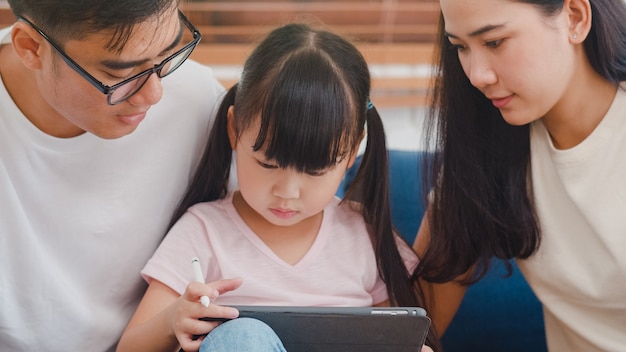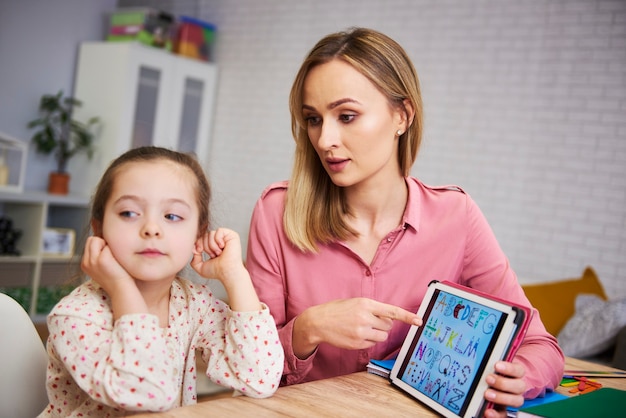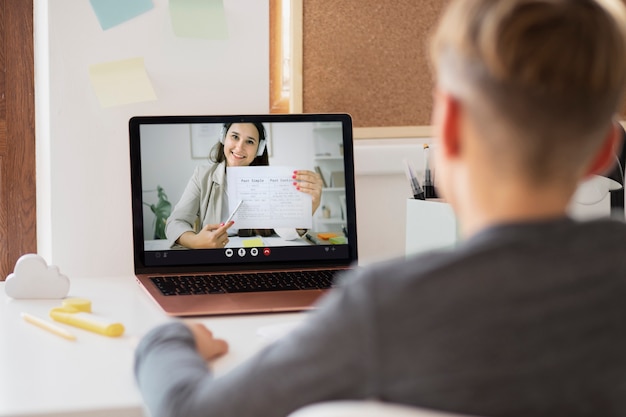
Education for learners with special needs has always been a tricky, ever-changing field as institutions and educators continually try to improve their teaching methods. The COVID-19 pandemic made things even more difficult for both students and teachers as they were both forced to adapt to distance learning as the new medium for quite some time. Fortunately, the rise of the education app and well-planned distance learning helped soften the effects of the pandemic in some cases for neurodivergent learners.
The rise of specially-made apps for particular conditions is a resounding success for many special-needs learners and their parents. One such example is the story of New Jersey’s Tatiana Martin and her son, Theo, who has autism and ADHD. Theo performed better with distance learning, with Martin saying he has been on the honour roll for the better part of the school year which never happened before.
Cases such as Martin’s story brought to light how app development and user-centred technology can help these students improve their academic and life skills. However, the road to creating highly-effective systems and apps, and then distributing them efficiently to channels is still a rough road that needs more exploration.
Addressing Difficulties Associated with Distance Learning
For many parents, one of the biggest challenges in helping their children with special needs is the need to replicate some of the teaching techniques done by professionals. This poses an extra burden on the part of the parents. Some problems such as potential difficulty in developing social skills also arise and may need additional support from the child’s family.
“When the autistic child is sitting at home, there’s no real chance to work on communication skills, which is usually an IEP (Individualised Education Plan) goal,” says Jan Blacher, director of the SEARCH Family Autism Resource Centre at the University of California Riverside (UC Riverside).
Downloading a specialised learning app can help address the problem. For example, some apps contain structured audio-visual materials, interactive games, and other activities that can capture and retain the attention of neurodivergent students. Other apps also feature content that aids parents or guardians in helping the child achieve the lesson objectives while developing social and other life skills.
Online options accessible through the use of desktop computers are also viable options, and sometimes are even more feature-rich than their mobile counterparts. Some online educational apps are browser-based, usually built by partnerships of web development experts and special education organisations, allowing users to be able to access the learning material through a laptop or PC with an internet connection.
App-Based Solutions for Bridging Teachers and Students
The digital classroom is a continuously evolving field of study. Fortunately, innovations in other industries have made their way to education too. Machine learning and AI-powered language learning apps are now available even for casual learners, and much are also in the roadmaps of app developers for learners with special needs.
Some apps with free trial periods are readily available for parents to try for their children, such as SoundingBoard, Epic!, and My PlayHome. There are also paid apps available with more complex and custom features to cater to more specific needs. These apps help in developing communication skills without the potentially-intrusive environment of traditional classrooms, and can even help special learners study on their own.
Teachers and educational institutions need to be sensitive to specific needs which may vary depending on the child’s condition, which will also need open communication between educators and the children’s parents. Strategies, points to consider, and sharing proven techniques can help foster a holistic approach to educating neurodivergent learners, such as those with autism.
Through apps, the myriad communication gaps between teachers and students using distance learning methods can be optimised.
The Future of Teaching for the Special Needs Education Industry
Education is evolving in the right direction, but it probably needs more effort. In a 2016 study by the Center on Online Learning and Students with Disabilities, it was found that many online learning platforms are not significantly supportive or “poorly aligned” with their special needs. Schools, parents, and investors in education need to be more open to utilising technological advancements to learn more about these needs to be able to address them more efficiently.
For example, having an innovative English learning app such as Rosetta Stone or Duolingo allows users to receive feedback from an automated grading system. This is easy to use and helpful for neurotypical learners, but neurodivergent students may need further aids. Fortunately, special-needs apps can also be designed to contain executive functions, life skills, lessen social and speech delays. Data can also be collected passively through the apps to provide experts with reliable and anonymous information to enhance the performance of the apps with time or through upgraded versions.
Conclusion
The most effective way to construct such specialised apps is for educational and mental health institutions to partner with software development agencies. By combining their knowledge and expertise, special needs education can be greatly augmented with popular technology such as apps for handheld devices.
In tech-centred nations such as Singapore, special-needs learning schools are also taking the technological highway to improve how neurodivergent students can absorb lessons. Development agencies such as User Experience Researchers Singapore (USER) are at the forefront of expanding the capabilities of schools through digital means, offering user-centred app development, usability testing, and other solutions for the education sector. For more information on our products and services, you can reach us for enquiries at https://www.user.com.sg/contact/.




